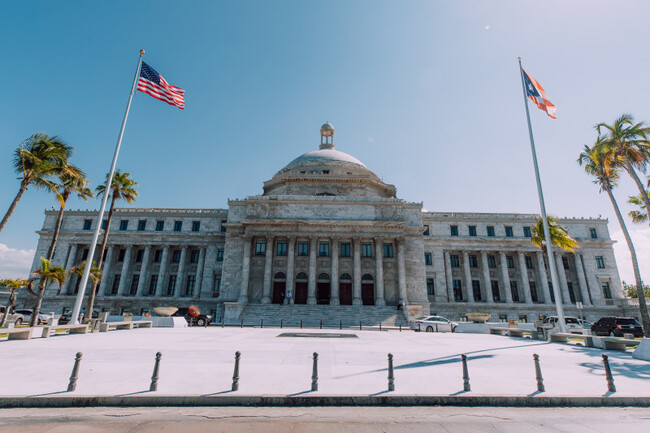A look at the challenges of environmental policies and PC.474
Image by Discover Puerto Rico
According to The University Of The People public policy is a set of laws, guidelines and actions decided upon and taken by governments to work on behalf of the public and influence how decisions are made about specific issues that are of public interest.
The development of public policies is divided into six stages: planning; diagnosis; formulation and adoption; promotion and dissemination; implementation and monitoring; and evaluation.
However, when we talk about environmental public policies, in particular, they seek to protect and conserve natural resources in the face of counterproductive interests, decisions and actions. The importance of environmental policies lies in the fact that they ensure the rights of the environment, its wellbeing, and the harmony between the natural environment and human action .
However, public policy is a response mechanism, but it is not always the solution.
Puerto Rican public policy
Did you know that in Puerto Rico there is a law that requires the development of environmental public policies? Law 416 of 2004, known as the “Environmental Public Policy Law”, has as its purpose:
-Establish a public policy that stimulates harmony between society and the environment.
Encourage efforts that would prevent or eliminate damage to the environment and the biosphere, and that would stimulate the health and well-being of the population.
-To enrich the understanding of the ecological systems and important natural sources of Puerto Rico.
-Establish an Environmental Quality Board.
Puerto Rico has more than 100 laws aimed at environmental protection. However, we can observe that every day the archipelago experiences different violations of its environmental rights – from toxic discharges into bodies of water to constructions that violate the Land Use Plan.
There is systematic noncompliance with these laws and public policies due, in part, to a lack of supervision, follow-up and continuity. In other words, there is no observable commitment or responsibility to carry out the laws which, moreover, lack continuity due to changes of administrations. These are known as “dead laws”.
On the other hand, much of Puerto Rico’s environmental legislation fails to comply with the public policy cycle, particularly the implementation and monitoring stage. Which begs the question, how well do public policies work?
An example of this is Act 550 of 2004, known as the “Commonwealth of Puerto Rico Land Use Plan Act”.
The Land Use Plan is intended, in part, to “give value to Puerto Rico by identifying land according to its heritage, ecological, agricultural, landscape, and rural or urban value,” according to the Planning Board. Its purpose is to:
-Preserveand protect natural, archeological or agricultural resources, rural soils, and environmentally sensitive soils from the adverse effects of construction; and
-To ensurea desirablequality of life in cities, communities and neighborhoods in a sustainable and fair manner.
However, we can see that many times the plan is not followed. We have seen it in the illegal constructions at Los Almendros beach in Rincon, Jobos Bay in Salinas, Ocean Park beach in Santurce and so on.
In Puerto Rico, it is not about a lack of public policies to address the environmental challenges and problems facing the country, as there are plenty of them. Instead, it is a need for commitment and follow-up to properly manage the natural assets of the archipelago and, in turn, ensure the welfare of the people.
Environmental problems and concerns are not solved by creating policies; they also require consistent and persistent actions that lead to their realization – to real change.
Recent environmental public policies
However, some of the most recent environmental public policies in Puerto Rico that have been approved or are in the process of being approved are:
-Law51 of 2022: Known as the “Act to prohibit the sale and use of single-use plastics in all commercial, sales and distribution establishments authorized to conduct business under the laws of the Commonwealth of Puerto Rico,” this Act prohibits the sale and use of most single-use plastics in all commercial, sales and distribution establishments authorized to conduct business. Law 51-2022 will become effective in the summer of 2024.
-PC474 of 2022: This bill seeks to create the “Active Environmental Legitimation Act,” which aims to grant active legitimacy to any person or organization to enforce Puerto Rico’s environmental public policy. That is, to grant legal standing to defend the environment in court. Governor Pedro Pierluisi has until Sunday, December 18, 2022 to sign this measure into law.
To support this bill, you can contact La Fortaleza on or before December 18, 2022 by calling (787) 721-7000 and requesting the governor to sign PC 474 for the creation of the “Active Environmental Litigation Act”.


Leave a Reply